Publications
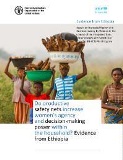
Do productive safety nets increase women’s agency and decision-making power within the household? Evidence from Ethiopia
21/06/2021
This report analyses women’s agency and decision-making power, which are a specific sub-domain of women’s empowerment, in the context of the Integrated Nutrition Social Cash Transfer (IN-SCT) pilot in Ethiopia. 55 pp.
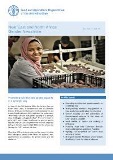
Near East and North Africa Gender Newsletter, July 2021 - Issue #5
01/06/2021
The RNE Gender features stories from projects and initiatives from Saudi Arabia, Lebanon, Sudan, Palestine and Yemen. 8 pp.
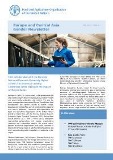
FAO Europe and Central Asia Gender Newsletter, May 2021 - Issue #3
22/05/2021
This publication discusses case studies from Azerbaijan, Tajikistan, Turkey and Uzbekistan and provides insight in supporting rural women in improving their knowledge and farming practices through the use of innovative technologies in cultivation. 7 pp.
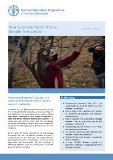
Near East and North Africa Gender Newsletter, April 2021 - Issue #4
19/04/2021
This issue of the Regional Office for Near East and North Africa Gender Newsletter features stories from Lebanon, Morocco, Sudan, Syria and Yemen that focus on gender dimensions of field programmes and on sharing impactful human stories. This is dedicated to International Women's Day celebrations in the region. 8 pp.

2020 in Review - Joint Programme on Gender Transformative Approaches for Food Security and Nutrition
31/03/2021
This brochure gives a review of the Joint Programme's achievements in 2020. It includes the different milestones reached under the Joint Programme with links to reports and publications. This annual review also highlights the main contributions of the JP GTA to other key activities and events. 8 pp.
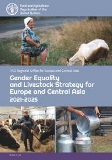
Gender equality and livestock strategy for Europe and Central Asia 2021–2025
29/03/2021
The gender equality and livestock strategy 2021-2025 presents the priority areas for gender mainstreaming in the REU Livestock Programme. These priorities were identified throughout a participatory process by key stakeholder in the Livestock Sector in Europe and Central Asia. The main priority areas are the following: 1) Collect and analyze sex-disaggregated data in livestock in a systematic manner; 2) Secure vulnerable livestock farmers' access to productive resources; 11 pp.
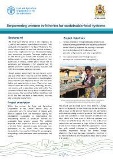
Empowering women in fisheries for sustainable food systems
25/03/2021
This factsheet outlines the activities of the ‘Empowering women in small-scale fisheries for sustainable food systems’ project. The activities proposed in this project are aimed at supporting the small-scale fishers especially women to increase their participation in the whole value chain thereby increasing their incomes from fishing, fish processing by using energy -saving or climate -smart technologies, and trading. 2 pp.
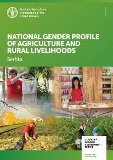
Serbia: National gender profile of agricultural and rural livelihoods (Country Gender Assessment Series)
21/03/2021
The National Gender Profile for Serbia represents the first comprehensive and structured attempt to collect and analyse available secondary data across all sectors relevant to agriculture and rural livelihoods. It provides a profound analysis of gender issues in agriculture, food security, and rural livelihoods. 124 pp.
